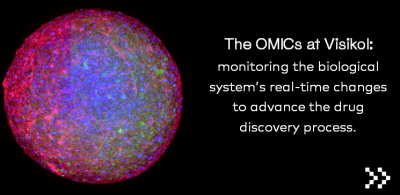
Visikol has expanded its drug discovery services by adding liquid chromatography coupled with a tandem mass spectrometer (LC-MS/MS) facility for metabolomics and epigenetics studies. The quantitative monitoring of proteins (proteomics) and their small molecule products (metabolomics), in addition to the dynamic changes to the genome (epigenetics), provides a real-time snapshot of the biological system. Biological systems utilize complex interactions between small-molecule metabolites to maintain normal physiological functions through defined biochemical pathways. Small molecules are organic molecules with a mass range of ~ 50-1500 Da, including carbohydrates, lipids, fatty acids, amino acids, and alkaloids. Those molecules are involved directly in biological reactions, either substrates or products. Metabolomics is the comprehensive quantification of small molecules, while the overall interaction between the metabolites within a biological system at any given time point is known as the metabolome. The metabolome maintains a homeostatic phenotype regardless of the rapid changes in the concentrations of the metabolites over time, and thus, changes in the metabolome could be linked with diseases and other environmental and epigenetic disturbances to the biological system.
Visikol utilizes LC-MS/MS and nuclear magnetic resonance (NMR), in addition to solid statistical analyses, to construct a metabolic fingerprint or profile, i.e., untargeted metabolomics, or quantify a specific metabolite, i.e., targeted metabolomics, for any biological sample. The global metabolomics analysis will help our clients identify novel biomarkers for their disease models. Metabolomics will be integrated with Visikol’s overall innovative cell line-based 3D cell culture models for toxicity assessments of drug candidates. Metabolomics will also help Visikol’s clients advance into the personalized medicine field, where every patient is different in their metabolomic phenotype.
Changes to the epigenome can also be monitored. Epigenetics refers to stable chemical modifications to the structure of DNA and its packaging proteins, histones, and regulatory RNAs, such as microRNAs, and is subject to regulation by environmental and pathological factors. Epigenetic mechanisms are also essential for tissue-specific gene expression patterns in mammals. Global changes in the epigenetic landscape are a hallmark of various chronic conditions such as epilepsy, Alzheimer’s disease, and cancer. DNA methylation and two histone post-translational modifications, methylation and acetylation, are perhaps the most extensively studied epigenetic modifications, both in normal conditions and in a wide variety of pathologies. Visikol has developed a robust analytical methodology for quantifying global DNA and RNA methylation utilizing LC-MS/MS and a proteomic approach for quantifying histone post modifications.
If you are interested in metabolomics, epigenetics, and proteomics and how OMICS can advance your research to a higher level, please reach out to our team to explore your drug discovery needs.
